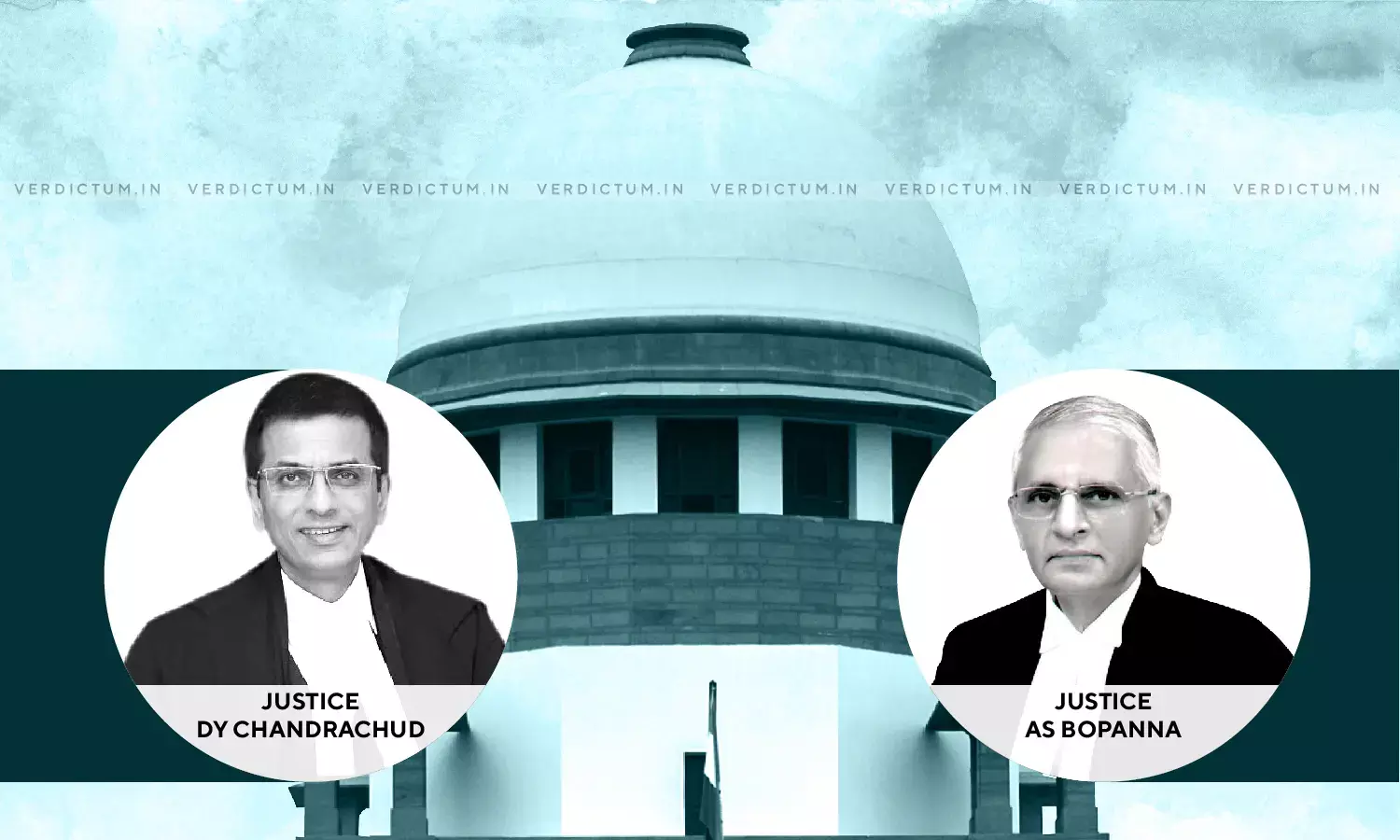Failure Of The Builder To Obtain Occupancy Certificate Is A Deficiency Of Service, A Continuing Wrong - Supreme Court

A two-judge bench of Justice Dr. D.Y. Chandrachud and Justice A.S. Bopanna has held that the failure of the builder to obtain the occupation certificate due to which excessive tax and increased charges were paid, was a deficiency of service as per the provisions of the Consumer Protection Act, 1986.
In this case, the Petitioners had filed a complaint before the National Consumer Dispute Redressal Commission (NCDRC) claiming a refund of the excessive taxes and charges paid to the Municipal Authorities due to the 'deficiency of service' of the Respondent. However, the NCDRC dismissed the complaint on the grounds that the complaint was barred by limitation. Additionally, the proceedings were stated to not be a consumer dispute since it was in the nature of a recovery proceeding. Moreover, the Commission held that the Respondent was not the service provider of the services which were paid through property tax or water charges. Thus, this appeal was preferred to the Apex Court challenging the impugned order and judgment of the Commission.
Mr. Sunil Fernandes appeared for the Appellants i.e. Samruddhi Co-operative Housing Society Ltd. while Mr. Atul Babasaheb Dakh appeared for the Respondents before the Apex Court.
The primary question for consideration was as follows –
(i)Whether the complaint filed was barred by limitation?
(ii)Whether the failure of the builder to obtain an occupancy certificate could be termed to be a 'deficiency of service' as per the Consumer Protection Act, 1986?
It was contended by the Appellants that the complaint was not barred by limitation since it was a continuing cause of action. It was stated that the Respondents had not obtained the occupation certificate even after twenty-four years from the date of possession, due to which the Appellants had to incur higher property taxes and additional water charges. As per Section 6 of the Maharashtra Ownership Flats (Regulation of the Promotion of Construction, Sale, Management and Transfer) Act 1963, it was argued that it was the duty of the builder to provide for an occupancy certificate, the failure of which must be termed to be a 'deficiency of service' as per the Consumer Protection Act.
The Respondents opposed the above submissions, by contending that the Appellants had taken possession of the flats to refurbish their flats and make suitable arrangements before the certificate could be granted. Moreover, the complaint was barred by limitation since the cause of action arose in 1987 and the claim was filed 18 years later. Also, it was stated by the Respondents that they were not the service providers and did not receive the payment for the water charges and the property tax. Hence, it was argued that since the Appellants were not 'consumers' as per Section 2(1)(d), the claim was not maintainable.
On the first issue, the Supreme Court referred to the cases of Balakrishna Savalram Pujari Waghmare v. Shree Dhyaneshwar Maharaj Sansthan, CWT v. Suresh Seth and M. Siddiq v. Suresh Das to elucidate on the meaning and nature of a 'continuing wrong.'
It was observed that a continuing wrong was said to have occurred when either party continuously breached an obligation which was imposed by law or through an agreement. Further, it was held, "Owing to the failure of the respondent to obtain the certificate, there has been a direct impact on the members of the appellant in terms of the payment of higher taxes and water charges to the municipal authority. This continuous failure to obtain an occupancy certificate is a breach of the obligations imposed on the respondent under the MOFA and amounts to a continuing wrong. The appellants therefore, are entitled to damages arising out of this continuing wrong and their complaint is not barred by limitation."
Thus, the Court held that due to the failure of the Respondents for obtaining the occupancy certificate, the Appellants had to repeatedly incur higher taxes and charges. The Appellants were continuing to suffer the agony due to the delay caused and injury inflicted by the Respondents. Keeping in mind the welfare objective of the Consumer Protection Act, the complaint could not be rejected as being barred by limitation.
Proceeding to the second issue, the Court referred to its decisions Wing Commander Arifur Rahman Khan v. DLF Southern Homes Private Limited, Pioneer Urban Land Infrastructure Limited v. Govindan Raghavan and, Treaty Construction v. Ruby Tower Cooperative Housing Society Ltd wherein it was held that the failure to obtain an occupancy certificate or abide by contractual obligations amounted to a deficiency in service which may even lead to compensation being awarded. In the present case, the Court observed that it was the duty of the Respondent to transfer the title of the flats in a society along with the occupancy certificate. The failure to obtain the certificate was a deficiency of service against which the Appellants could receive compensation due to the payment of higher taxes and increased charges.
Thus, the Court allowed the appeal against the impugned order and judgment of NCDRC and held the complaint to be maintainable. Moreover, the Court directed the Commission to decide on the merits of this case within a period of three months.
Click here to read/download the Judgment

